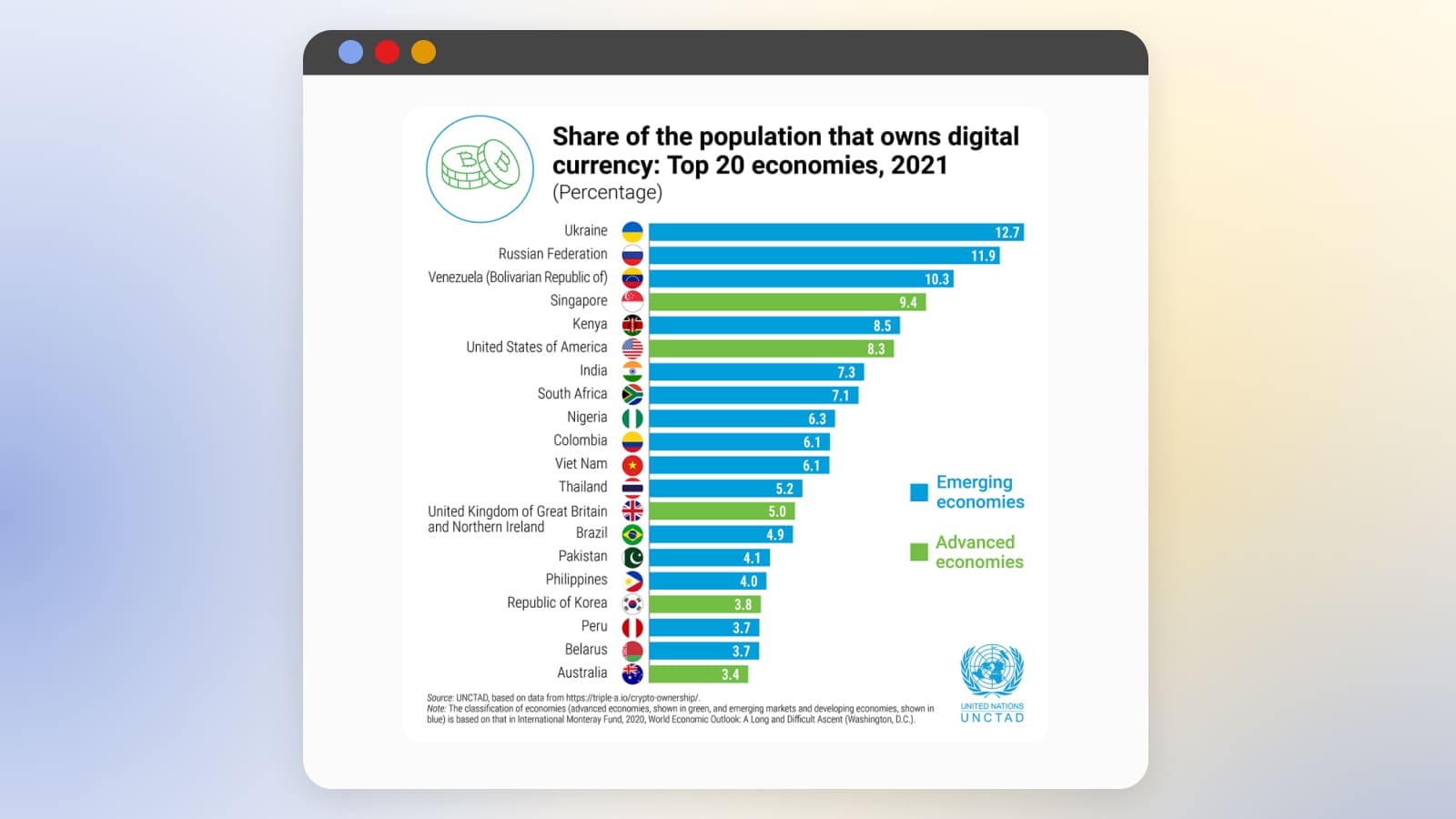Cryptocurrency in Developing vs. Developed Countries

- Understanding the impact of cryptocurrency in developing countries
- Challenges and opportunities of cryptocurrency adoption in developed nations
- Cryptocurrency as a tool for financial inclusion in developing countries
- Regulatory differences between cryptocurrency in developed and developing nations
- The role of government policies in shaping cryptocurrency adoption
- Cryptocurrency’s potential to bridge the economic gap between developed and developing countries
Understanding the impact of cryptocurrency in developing countries
Understanding the impact of cryptocurrency in developing countries is crucial in assessing the potential benefits and challenges that this new form of digital currency can bring to these economies. While cryptocurrency has gained popularity in developed countries, its adoption in developing nations presents a unique set of opportunities and obstacles.
One of the main advantages of cryptocurrency in developing countries is its potential to provide financial inclusion to unbanked populations. By allowing individuals to access and transfer funds without the need for traditional banking services, cryptocurrency can help bridge the gap between the rich and the poor.
Moreover, cryptocurrency can also serve as a hedge against inflation and economic instability in developing countries. With many of these nations facing volatile currencies and uncertain economic conditions, cryptocurrency can offer a more stable store of value for individuals looking to protect their wealth.
However, the adoption of cryptocurrency in developing countries is not without its challenges. One of the main obstacles is the lack of regulatory clarity and infrastructure to support the widespread use of cryptocurrency. Without proper regulations and technological infrastructure, cryptocurrency adoption in these nations may be hindered.
Additionally, the high volatility of cryptocurrency prices can pose a risk to individuals in developing countries who may not have the financial literacy to navigate this market effectively. Without proper education and awareness, individuals in these nations may be susceptible to financial losses.
In conclusion, while cryptocurrency holds great promise for financial inclusion and stability in developing countries, its adoption must be accompanied by regulatory frameworks and educational initiatives to ensure its benefits are realized while mitigating potential risks.
Challenges and opportunities of cryptocurrency adoption in developed nations
Adopting cryptocurrency in developed nations presents both challenges and opportunities. While these countries have the infrastructure and technological advancements to support digital currencies, there are still hurdles to overcome.
One of the main challenges is regulatory uncertainty. Governments in developed nations are still grappling with how to regulate cryptocurrencies, which can create confusion and hinder widespread adoption. Additionally, security concerns are prevalent, as hackers often target digital assets in these countries.
On the other hand, there are significant opportunities for cryptocurrency adoption in developed nations. The advanced financial systems and tech-savvy populations make it easier for people to understand and use digital currencies. Moreover, the potential for innovation and growth in the fintech sector is immense.
Overall, while there are obstacles to overcome, the adoption of cryptocurrency in developed nations has the potential to revolutionize the way we think about money and finance. With the right regulations and security measures in place, digital currencies could become a mainstream form of payment in these countries.
Cryptocurrency as a tool for financial inclusion in developing countries
Cryptocurrency can serve as a valuable tool for promoting financial inclusion in developing countries. By leveraging blockchain technology, cryptocurrencies offer a decentralized and secure way for individuals to access and manage their finances, even without traditional banking services. This can be particularly beneficial in regions where banking infrastructure is lacking or unreliable.
One of the key advantages of cryptocurrency is its ability to facilitate cross-border transactions at lower costs and faster speeds compared to traditional banking systems. This can be especially helpful for individuals in developing countries who rely on remittances from family members working abroad. Cryptocurrencies can provide a more efficient and cost-effective way for these individuals to receive and send money.
Furthermore, cryptocurrency can help empower individuals in developing countries to participate in the global economy. By enabling access to digital financial services, cryptocurrencies can open up new opportunities for entrepreneurship and financial growth. This can help reduce poverty and stimulate economic development in these regions.
Regulatory differences between cryptocurrency in developed and developing nations
Regulatory differences between cryptocurrency in developed and developing nations play a significant role in shaping the landscape of digital currencies around the world. While developed countries tend to have more robust regulatory frameworks in place to govern the use of cryptocurrencies, developing nations often struggle to keep up with the pace of innovation in this space.
In developed countries, regulatory bodies such as the Securities and Exchange Commission (SEC) and the Financial Conduct Authority (FCA) closely monitor and regulate the use of cryptocurrencies to protect investors and maintain financial stability. These regulatory bodies often require cryptocurrency exchanges to comply with strict Know Your Customer (KYC) and Anti-Money Laundering (AML) regulations to prevent illicit activities.
On the other hand, developing nations may lack the resources and expertise to effectively regulate cryptocurrencies, leading to a more fragmented and uncertain regulatory environment. This can create challenges for businesses and investors looking to participate in the cryptocurrency market in these countries.
Overall, the regulatory landscape for cryptocurrency differs significantly between developed and developing nations, with developed countries generally having more stringent regulations in place to protect consumers and investors. As the cryptocurrency market continues to evolve, it will be crucial for regulators in both developed and developing nations to collaborate and establish clear guidelines to ensure the responsible use of digital currencies.
The role of government policies in shaping cryptocurrency adoption
Government policies play a crucial role in influencing the adoption of cryptocurrencies in both developing and developed countries. These policies can either promote or hinder the growth of the cryptocurrency market, depending on their stance towards digital assets.
In developed countries, governments often have more resources and regulatory frameworks in place to monitor and regulate the use of cryptocurrencies. This can provide a sense of security and legitimacy to investors and users, leading to higher adoption rates. On the other hand, overly restrictive policies can stifle innovation and limit the potential benefits of cryptocurrencies.
In contrast, developing countries may have less established regulatory frameworks and resources to oversee the cryptocurrency market. This can create uncertainty and risk for investors, potentially slowing down adoption rates. However, some developing countries are taking a more progressive approach towards cryptocurrencies, seeing them as a way to promote financial inclusion and economic growth.
Overall, government policies can shape the adoption of cryptocurrencies by providing clarity, security, and support to the market. Finding the right balance between regulation and innovation is key to fostering a healthy and thriving cryptocurrency ecosystem, regardless of the country’s level of development.
Cryptocurrency’s potential to bridge the economic gap between developed and developing countries
Cryptocurrency has the potential to act as a bridge between developed and developing countries, offering a new way to conduct financial transactions that is not dependent on traditional banking systems. This can help to reduce the economic gap between these two types of countries by providing more equal access to financial services and opportunities.
One of the key advantages of cryptocurrency is its ability to facilitate cross-border transactions quickly and securely, without the need for intermediaries such as banks. This can be particularly beneficial for individuals and businesses in developing countries who may not have access to traditional banking services or who may face high fees for international transfers.
By using cryptocurrency, individuals in developing countries can participate more easily in the global economy, access new investment opportunities, and protect their wealth from inflation and currency devaluation. This can help to stimulate economic growth and reduce poverty in these regions.
Furthermore, cryptocurrency can also help to increase financial inclusion by providing unbanked populations with access to digital wallets and payment systems. This can empower individuals to save, invest, and transact more easily, leading to greater economic stability and prosperity.



